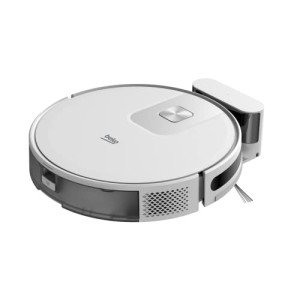The Most Advanced Guide To Floor Robot
The Rise of Floor Robots: A Comprehensive Guide
In the last few years, the development of floor robotics has transformed the landscape of home cleaning and maintenance. Armed with innovative innovation, these smart devices are developed to decrease human effort while optimizing efficiency. This post explores the numerous aspects of floor robots, including their performance, benefits, types, and considerations for acquiring one.
Comprehending Floor Robots
Floor robots, typically called robotic vacuums or floor cleaners, automate the process of cleaning floors in property and commercial areas. They use a mix of sensors, mapping technology, and artificial intelligence to navigate, identify dirt, and tidy various types of surfaces. their explanation saves time but likewise enhances the efficiency of cleaning efforts.
How Do Floor Robots Work?
Floor robotics operate through a combination of hardware and software application parts designed to enhance their cleaning abilities. Below is a streamlined summary of their operational procedure:
Mapping and Navigation:
- Using Lidar, cams, or infrared sensing units, the robot develops a map of the area.
- It recognizes and prevents obstacles, making sure efficient navigation.
Cleaning Mechanics:
- Most floor robotics are equipped with rotating brushes or suction mechanisms to gather particles.
- They can vary their cleaning modes based upon the kind of surface area (carpet, tile, and so on).
Dirt Detection:
- Advanced models utilize dirt-detection sensing units to recognize greatly stained locations and tidy them better.
Self-Charging:
- Once cleaning is total or the battery runs low, numerous robotics instantly return to their charging stations.
App Integration:
- Many floor robotics feature mobile applications that enable users to schedule cleaning sessions, set cleaning modes, and display progress.
Advantages of Using Floor Robots
The appeal of floor robots can be attributed to a number of crucial benefits, including:
- Time-Saving: Users can dedicate their time to more vital jobs while the robot handles the cleaning.
- Consistency: Robots can follow a regular cleaning schedule, making sure a consistently tidy environment.
- Hard-to-Reach Areas: Floor robots can browse under furnishings and into difficult situations that traditional vacuums may have a hard time to reach.
- Reduction of Allergens: Regular cleaning helps decrease dust and irritants, contributing to a healthier home environment.
- User-Friendly: With simple interfaces and app functionality, floor robots are accessible for users of any ages.
Types of Floor Robots
There are numerous types of floor robotics offered on the marketplace, each designed to cater to various requirements:
Type of Floor Robot
Description
Best Usage
Robotic Vacuums
Primarily developed for vacuuming carpets and hard floorings.
Everyday cleaning of different surface areas.
Robotic Mops
Geared up with a mopping function for damp cleaning.
Suitable for hard surfaces requiring wet cleaning.
Combination Robots
Combines vacuuming and mopping performances.
Versatile cleaning for a variety of surface areas.
Specialized Robots
Designed for particular tasks (e.g., family pet hair elimination).
Houses with animals or specific cleaning needs.
Considerations When Buying a Floor Robot
Purchasing a floor robot involves a number of factors to consider to ensure that the picked model fulfills the cleaning requirements. Below are some factors to bear in mind:
Floor Type:
- Consider whether the robot is suitable for carpets, wood, tile, or a mix of flooring types.
Battery Life:
- Evaluate the robot's battery period to figure out the length of time it can clean before needing a recharge.
Suction Power:
- Higher suction power is crucial for reliable cleaning, especially on carpets.
Navigation System:
- An advanced navigation system adds to efficient cleaning patterns and much better barrier avoidance.
Dustbin Capacity:
- Larger dustbins require less regular emptying, which is hassle-free for users.
Smart Features:
- Look for designs with Wi-Fi connection, app support, and voice control compatibility for included convenience.
Frequently Asked Questions about Floor Robots
Q1: How much do floor robots cost?A1: Prices can vary from ₤ 200 to over ₤ 1,000, depending upon functions and brand name.
**Q2: Can floor robotics tidy multiple floor types?A2: Yes, lots of robotic vacuums are created to be efficient on both carpets and difficult floors. Q3: How often ought to I run my floor robot?A3: For optimum outcomes, it is advised to arrange day-to-day or bi-weekly cleaning depending on foot traffic and family pet presence. Q4: Do floor robots work well with pet hair?A4: Models particularly created for family pet owners include
more powerful suction power and unique brushes to successfully get rid of pet hair. Q5: Can I control my floor robot remotely?A5: Most modern floor robots come with app connection, allowing you to manage them from another location from your
**smart device. The arrival of floor robots signifies a substantial advancement in home cleaning technology. Integrating performance, user-friendliness, and advanced features, these devices provide a look
into the future of home upkeep. As customers progressively seek solutions that conserve time and promote cleanliness, the floor robot market is poised for ongoing growth and innovation. With a variety of alternatives readily available, comprehending their functions, advantages, and performances can assist users select the perfect addition to their cleaning regimen.  ****
****